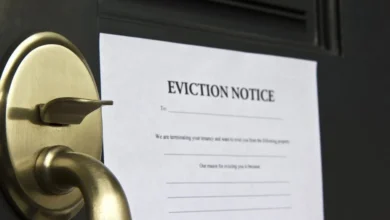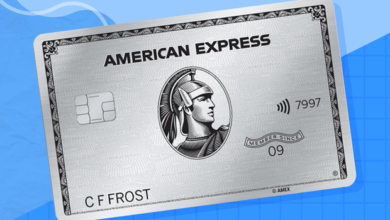Does Being Power of Attorney Make You Responsible for Debts? Clear Answers & Responsibilities

When someone is appointed as a Power of Attorney (POA), they gain the legal authority to make decisions on another person’s behalf. However, one common question arises: does being power of attorney make you responsible for debts? The answer to this question isn’t always straightforward, as it involves understanding the extent of a POA’s role and their financial responsibilities. This article aims to clarify the duties of a POA, highlight the misconceptions about debt liability, and explain the legal aspects of this role.
Understanding the Role of Power of Attorney
A Power of Attorney is a legal document granting an individual, known as the “agent” or “attorney-in-fact,” the authority to act on behalf of another person, the “principal.” This authority can be broad, covering all aspects of financial and legal decisions, or limited to specific tasks, depending on the type of POA. Some common types include:
- Durable POA: Remains in effect even if the principal becomes incapacitated.
- Financial POA: Specifically grants the agent authority to handle financial matters, such as paying bills or managing bank accounts.
- Medical POA: Empowers the agent to make healthcare decisions on the principal’s behalf.
Key Insight: A POA’s primary function is to assist the principal in managing their affairs, but this does not necessarily make the agent personally liable for the principal’s financial obligations. The agent’s responsibility is to act in the principal’s best interests and make decisions as if the principal were making them.
Financial Responsibilities and Debt: What Does a POA Cover?
The authority of a POA includes handling financial tasks such as paying bills, managing investments, and overseeing transactions. However, does being power of attorney make you responsible for debts of the principal? In most cases, the answer is no. The POA grants the ability to manage and pay off the principal’s debts using the principal’s assets, but it does not transfer the debt liability to the agent.
For example, if a POA is in charge of paying off a mortgage or outstanding credit card debt, they must use the principal’s funds—not their own. The POA is acting as a representative, making decisions on behalf of the principal but not incurring any personal liability for those debts.
However, there are scenarios to be cautious of, such as if the agent mismanages funds or uses the principal’s money for their benefit, which could potentially lead to legal issues. In such cases, an agent could be held accountable for their actions, but this accountability is not related to the principal’s existing debts.
Does a POA Become Personally Liable for Debts?
It’s crucial to distinguish between managing someone’s financial affairs and becoming responsible for their debts. Generally, a POA does not make the agent personally liable for any debts accrued by the principal. The agent’s role is to pay off debts using the principal’s assets, but they do not inherit those debts themselves.
There are specific situations to consider:
- Secured vs. Unsecured Debt: For secured debts like a mortgage, the POA is responsible for ensuring payments are made on time using the principal’s funds, but the debt does not become their own. Unsecured debts like credit card bills or medical expenses work similarly—the POA must handle them appropriately, but they are not obligated to pay out of their own pocket.
- Tax Obligations: As a POA, managing taxes is part of the financial responsibility, but the POA is not personally responsible for unpaid taxes unless they deliberately mismanage funds.
- Misconduct or Mismanagement: If a POA commingles personal funds with the principal’s or uses the principal’s money for personal expenses, they could be held personally liable. Such actions violate the agent’s fiduciary duty and could lead to lawsuits or criminal charges.
This leads us back to the primary keyword: does being power of attorney make you responsible for debts? Under normal circumstances, simply holding the role of a POA does not make an individual personally responsible for the debts of the principal.
Common Misconceptions About POA and Debt Responsibility
Many people mistakenly believe that becoming a POA automatically means taking on the principal’s debts, which is far from accurate. Here are some misconceptions clarified:
- Myth: A POA inherits all the financial liabilities of the principal.
- Fact: The POA manages the principal’s finances, but does not become responsible for those debts with their personal assets.
- Myth: A POA is like a co-signer or guarantor for the principal’s obligations.
- Fact: Unlike a co-signer, who shares financial liability, a POA is simply managing financial decisions and obligations without personal liability.
Understanding these distinctions is crucial for anyone considering becoming a POA or appointing one.
Best Practices for Managing Debt as a POA
If you are acting as a POA, there are a few best practices to ensure that you handle the principal’s debts properly without becoming financially entangled:
- Keep Detailed Records: Maintain accurate records of all financial transactions and decisions made on behalf of the principal.
- Separate Finances: Always keep the principal’s money separate from your own to avoid any accusations of commingling or financial misconduct.
- Consult Legal or Financial Professionals: Seek advice from attorneys or financial advisors to understand your role and how to navigate debt-related issues.
- Transparent Communication: Keep open lines of communication with the principal (if possible) and their family, ensuring that all financial decisions align with the principal’s best interests.
By following these steps, you can effectively manage the principal’s finances and debts while protecting yourself from unintended liability.
Legal Protection and Next Steps
It’s important to note that POAs have legal protections in place to prevent personal liability for debts as long as they act in good faith and within their granted authority. If you are concerned about becoming liable for a principal’s debts, consider consulting a lawyer who specializes in elder law or estate planning. They can help clarify the responsibilities and limitations of your role as a POA and provide guidance on managing finances without taking on personal liability.
Conclusion
In summary, acting as a POA comes with the responsibility to manage the principal’s finances effectively and in their best interest. However, it does not mean that the POA is personally liable for the debts of the principal. As long as the agent performs their duties lawfully and ethically, they are protected from inheriting any financial liabilities.




